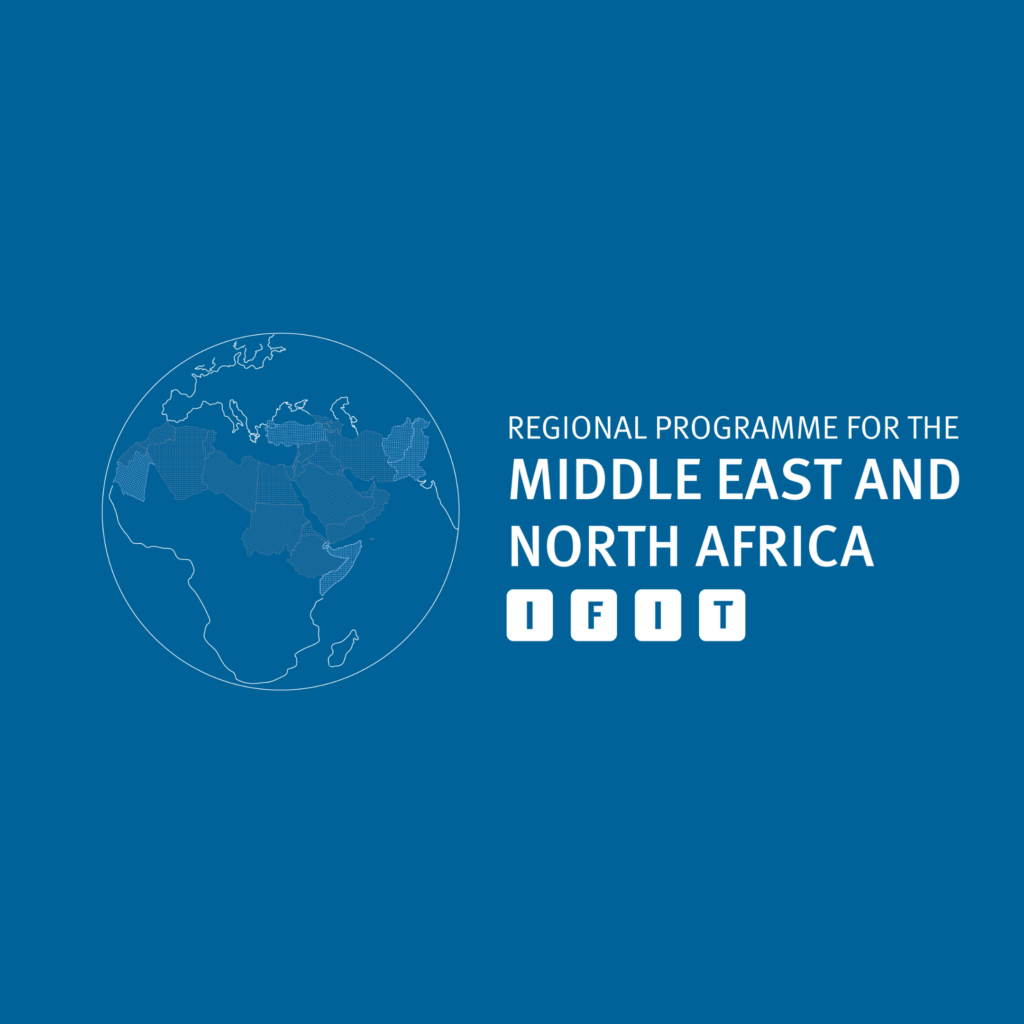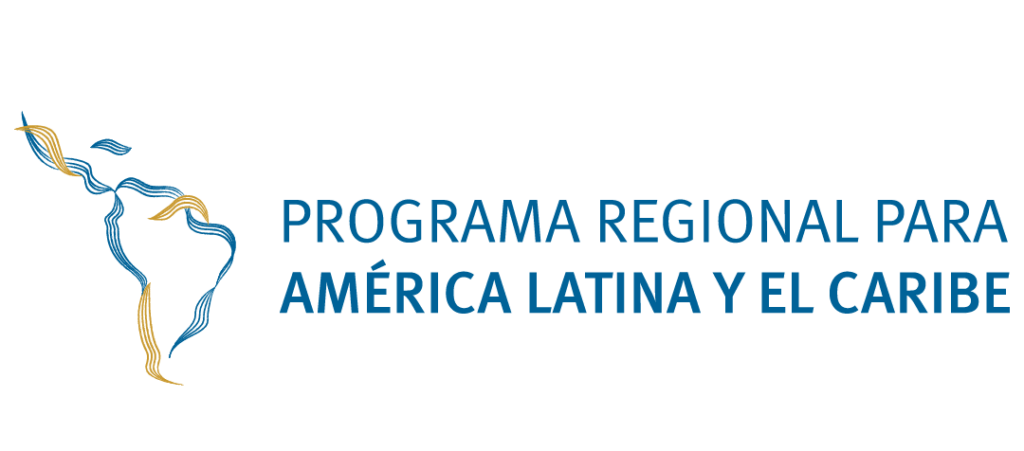Asala Zreiqi is an Intern at the Institute for Integrated Transitions (IFIT) and a Master’s degree student in International Development at the Barcelona Institute of International Studies (IBEI). She holds a Bachelor’s degree in Communication and English Language and Literature from the University of Haifa, as well as an additional degree in Social Sciences from Bar-Ilan University.
Before joining IFIT, Asala worked as a journalist for multiple international TV channels, covering political and social developments in both Israel and the West Bank. She brings extensive experience in field reporting, news production, and working in complex and sensitive political environments.
At IFIT, she supports the MENA regional projects by drawing on her field reporting experience from conflict affected contexts.
Working languages: Arabic, Hebrew, English.
You may also be interested in
Safaa Ben Hdia serves as a Finance Officer at the Institute for Integrated Transitions (IFIT), where she supports financial administration, accounting, and reporting functions. She has experience in financial management and compliance, particularly within the non-profit sector.
Prior to joining IFIT, she worked with Social Value International, a global charity focused on changing the way society accounts for value, where she managed financial administration, reporting, and compliance processes, and supported operational efficiency improvements. She also worked with a mission-driven organization focused on human rights and social justice in Africa, overseeing financial procedures and supporting transparent fund management. Earlier in her career, she gained experience in a corporate environment, developing streamlined financial processes.
Safaa holds a Bachelor of Science in Business Administration (Accounting and Finance) and has completed certifications in trustee e-learning, social impact measurement, and green digital skills.
Working languages: English, Arabic and French.
You may also be interested in
María José Rodríguez González is a Consultant to IFIT’s Mexico project and also contributes to the implementation of IFIT’s global initiative on Fast-Track Negotiation.
She holds a degree in International Relations from El Colegio de México and is an associate at the Mexican Council on International Affairs (Comexi) within the Europe Study and Reflection Unit, where she has carried out national and regional analyses on current political trends and developments.
María José’s research focuses on international peace and security, migration and asylum, identity formation and nationalism, and political philosophy.
Working languages: English and Spanish.
You may also be interested in
Mariana Cárdenas Millán es pasante en el Institute for Integrated Transitions (IFIT), con base en la oficina de Bogotá, donde apoya actividades de investigación, análisis y proyectos relacionados con el trabajo de la organización en Colombia.
Antes de unirse a IFIT, participó en proyectos estudiantiles de consultoría, apoyó cursos de economía como asistente, contribuyó a investigaciones de pregrado en política pública, tomó parte en foros internacionales de debate y realizó voluntariado en iniciativas dirigidas a niños y jóvenes.
Actualmente cursa el pregrado en Economía, con estudios adicionales en derecho de los negocios, psicología social y periodismo. Sus intereses incluyen la economía del comportamiento, la macroeconomía, la regulación financiera y los factores psicológicos y sociales que influyen en la toma de decisiones económicas.
Idiomas de trabajo: español e inglés.
You may also be interested in
Mariana Cárdenas Millán is an Intern at the Institute for Integrated Transitions (IFIT), based in the Bogotá office, where she supports diverse IFIT research, analysis, and project activities in Colombia.
Before joining IFIT, she took part in student consulting projects, contributed to undergraduate research on economics and public policy, and engaged in international debate platforms and youth-focused initiatives.
Mariana is completing a degree in Economics at the Universidad de los Andes, with additional studies in business law, social psychology, and journalism. Her interests include behavioral economics, macroeconomic dynamics, financial regulation, and the psychological and social factors shaping economic decision-making.
Working languages: English and Spanish.
You may also be interested in
Pablo Javier Martinez Acevedo es pasante en el Institute For Integrated Transitions (IFIT). Está ubicado en la oficina de Bogotá, donde apoya el trabajo de IFIT en Colombia.
Antes de entrar a IFIT, Pablo ha realizado investigaciones universitarias sobre los derechos humanos, su relación con las herramientas de Inteligencia Artificial en el semillero y actualmente sobre política criminal en la “Escuela de Investigación y Pensamiento Penal POLYCRIMED” de la UNAL. De igual forma, ha trabajado en la Jurisdicción Especial para la Paz en el caso 10 participando en la contrastación de informes y versiones voluntarias.
Pablo es un estudiante apunto de graduarse de abogado de la Universidad Nacional de Colombia. Sus áreas de interés incluyen la justicia transicional, la política criminal, los derechos humanos y el derecho de las nuevas tecnologías.
Idiomas de trabajo: español e inglés.
You may also be interested in
Pablo Javier Martínez Acevedo is an intern at the Institute for Integrated Transitions (IFIT). He is based in the Bogotá office, where he supports IFIT’s work in Colombia.
Before joining IFIT, Pablo conducted university research on human rights and their relationship with AI tools in a research group, and he is currently working on criminal policy issues at the School of Criminal Research and Thought at the Universidad Nacional de Colombia. He has also worked at Colombia’s Special Jurisdiction for Peace, participating in fact checking and the processing of voluntary confessions.
Pablo is a law student in his final year at the National University of Colombia. His areas of interest include transitional justice, criminal law policy, human rights, and the law of new technologies.
Working languages: English and Spanish.
You may also be interested in
Mostafa Al Hamod is a Syrian expert specialising in governance and local development who currently leads IFIT’s Syria project and coordinates the Syria Resource Group (SRG). He is based in Damascus.
Over the years, Mostafa has supported Syrian and international institutions in strengthening participatory governance, planning for recovery, and building institutional capacity. His current work involves facilitating inclusive multi-stakeholder dialogues, helping local communities define their recovery priorities, and providing practical recommendations and guidance for policy and programme design. In addition, he develops research reports that advance inclusive recovery and protect the rights of vulnerable groups.
Beyond his work with IFIT, Mostafa is a member of the Advisory Board of Adopt a Revolution, and the Chairman of the Board of Leadership for Development and Sustainability (LDS). He holds a Bachelor’s in Law (Administrative Law) from the University of Aleppo, Syria.
Working languages: Arabic and English
You may also be interested in
Ashley Dua is an Extern contributing to IFIT’s initiatives on sustainable transitions, apex courts, bottom-up dialogue, hybrid and authoritarian regimes, and civil-military relations through her involvement in various projects conducted by the Security Engagement Practice Group (SEPG), Uzbekistan Expert Group, and Global Initiative on Apex Courts Appointments.
Before joining IFIT, Ashley was an Editorial Intern for Human Rights Quarterly, through the Urban Morgan Institute for Human Rights at the University of Cincinnati College of Law. Additionally, she provided immigration and resettlement assistance in the Broome County region of New York at the American Civic Association. Ashley also has contributed to the CIRI Human Rights Database, where she utilized mixed methodologies to evaluate global protections, in law and in practice, for Indigenous peoples and LGBTQ+ communities.
Ashley holds a B.A. in Political Science with minors in Human Rights and Global Studies. She is currently a masters student at Binghamton University studying Genocide and Mass Atrocity Prevention through the I-GMAP institute. Her scholarly research focuses on conflict prevention, microdynamics of mass atrocities, social cohesion, memorialization and post-conflict narratives, and gender studies.
Working languages: English.
You may also be interested in
Emilio Arturo Barbosa Meillon es pasante en el Institute for Integrated Transitions (IFIT), colaborando en el proyecto de México.
Actualmente, Emilio cursa la Licenciatura en Relaciones Internacionales en el Tecnológico de Monterrey y la Licenciatura en Derecho en la Universidad Nacional Autónoma de México (UNAM). Sus áreas de especialización e investigación son la violencia criminal en el contexto mexicano y la paz y seguridad internacional.
Sus áreas de interés son la construcción de paz, el acceso a la justicia, la independencia judicial, el derecho internacional humanitario y los estudios estratégicos.
Working languages: English and Spanish.









